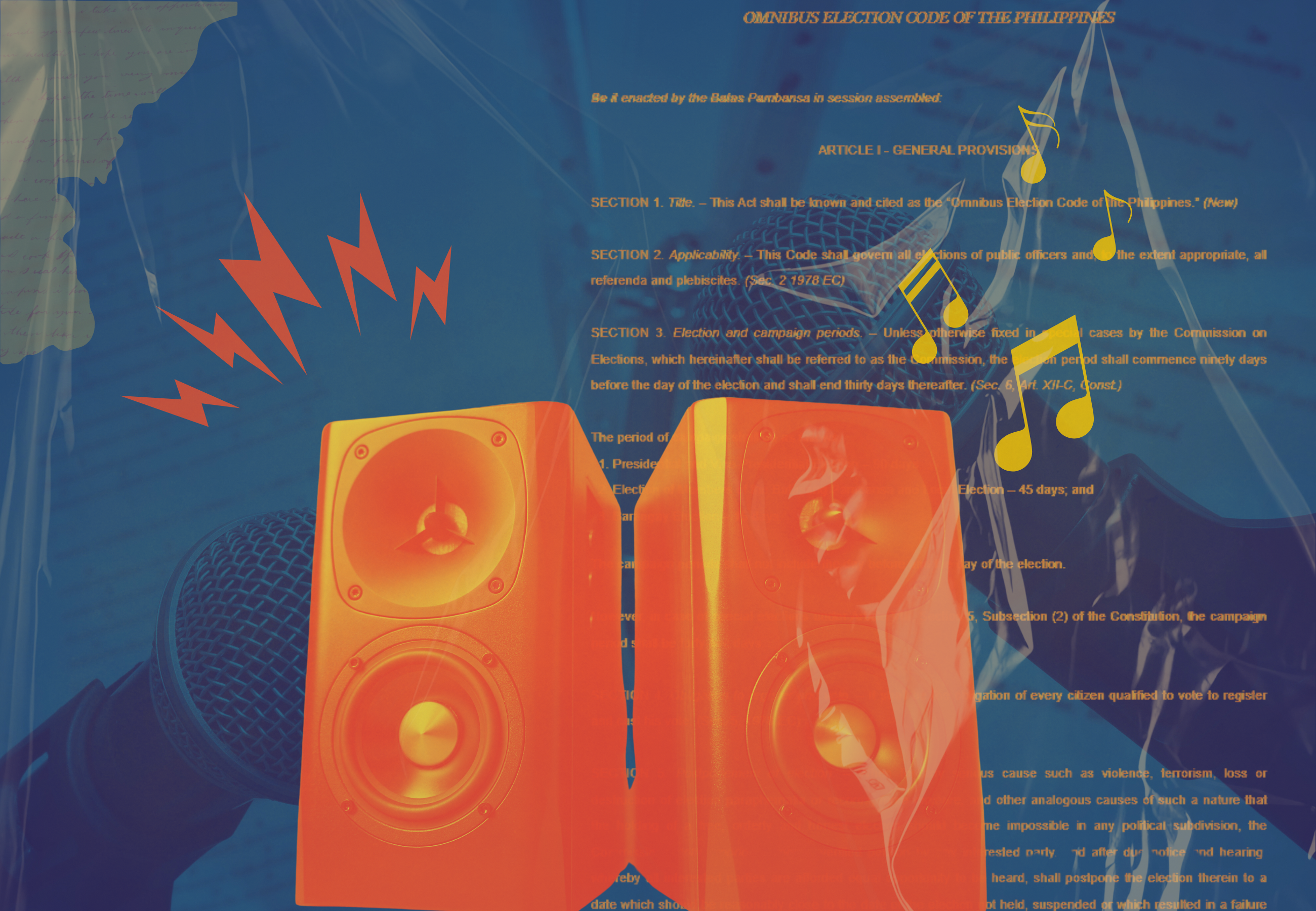Campaign jingles and the sound of misogyny

CAMPAIGN JINGLES add to the fun of elections in the Philippines, with some staying fixed in the mind long after election day. Not having a catchy tune or clever lyrics sets back the candidate, who must draw on other factors to keep their name in voters’ minds.
In recent years, campaign managers have needed to check that the message does not offend various sensitivities and is free of sexist humor, cultural slurs, innuendo, and sexual objectification of women and other gender identities.
Recent elections highlighted misogynistic slips, failing to observe the standards set by the Commission on Elections (COMELEC). It seems that sexism has become so deeply ingrained in popular culture as to become a tool of political propaganda. Standards can only be enforced with the backing of public complaints.
Crude lyrics and coded messages
In the 2023 Barangay and Sangguniang Kabataan Elections (BSKE), COMELEC was compelled to act on several complaints regarding campaign jingles that used sexually suggestive lyrics and double entendres. A viral example was the jingle used by a barangay captain in Nueva Ecija. “Pepe Mo, Pepe Ko” aired on social media and played out sexual innuendos that sparked public outrage. COMELEC issued a warning, and the candidate issued a public apology.
In response, the Commission warned candidates about ethical standards that candidates are obliged to observe. The practice, however, has shown observance in the breach.
In April 2025, the jingle of Manila councilor candidate Mocha Uson spotlighted this issue. Her jingle, which repeated the line “Cookie ni Mocha, ang sarap-sarap,” was widely condemned for its overtly sexual undertones. Uson defended its use as a “creative metaphor,” missing the point entirely as political messages trade in metaphors and are judged as offensive at precisely that level. Women’s groups and voters complained about the jingle as “demeaning” and “inappropriate.” Uson eventually withdrew the song, without any apology.
Apart from misogyny, copyright issues have also been raised against some jingles. In March 2025, detained religious leader and senatorial candidate Apollo Quiboloy faced a copyright infringement lawsuit filed by hip-hop artist Omar Baliw. The lawsuit alleged that Quiboloy’s campaign used one of Baliw’s songs as a jingle without authorization.
COMELEC issued a reminder to all candidates about its fair election guidelines. The pattern demonstrates the dependence of political campaigns, like those that sell soap or soup, to appeal to the common and the familiar.
The Legal Limits of Expression
Under the Omnibus Election Code, campaign materials—including jingles—must not be offensive, obscene, or contrary to public morals (Sec. 83). While jingles fall under protected forms of expression, they are not exempt from scrutiny and can be checked when these degrade public discourse and perpetuate harmful stereotypes or in other ways, degrade public discourse.
The code also empowers COMELEC to regulate premature campaigning and materials that violate ethical standards, although the enforcement mechanisms are often inconsistent and ineffective.
Sexism in Sync: A Systemic Challenge
In 2023, COMELEC issued over 7,000 show cause orders to candidates accused of violating campaign conduct rules during the BSKE. While many were tied to premature campaigning, a portion addressed inappropriate content, including the use of vulgar language or material deemed gender-insensitive.
The persistence of sexist jingles is not simply a matter of poor taste—it’s symptomatic of a larger culture in which misogyny is tolerated, normalized, and even rewarded in politics.
Media could turn to the audience or voters courted by these candidates, asking them to express their reactions and project the electorate not as an inert mass but as an active judge of the fitness of candidates for public office. The campaign is precisely the period provided so citizens can examine the candidates and decide their worthiness for public office.
As long as viral fame and social media traction remain the metrics of campaign success, candidates will continue to exploit sexist tropes for visibility. Campaigns like our politics have already been demonstrated for their pandering to the lowest common denominator of public attention. Do we need any more scandals to further demean the citizens’ exercise of choosing their political leaders?
The media must review their coverage to check how much they have done to provide voters with enough information to help voters install the best and the brightest, including information that reflects character and integrity.
Leave a Reply